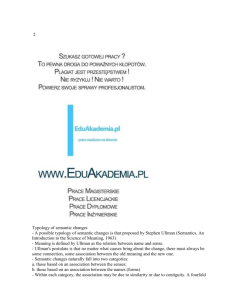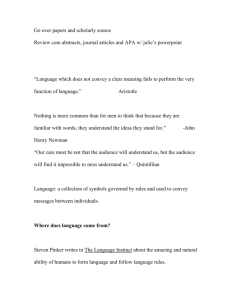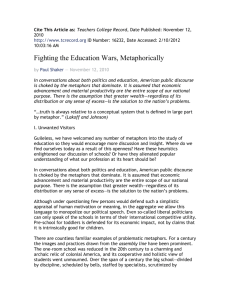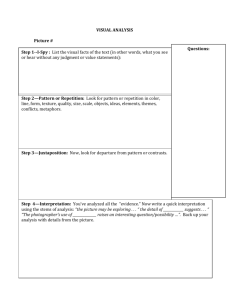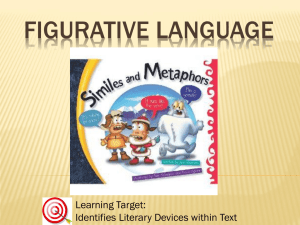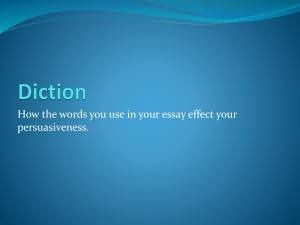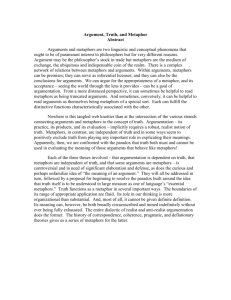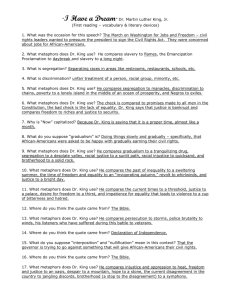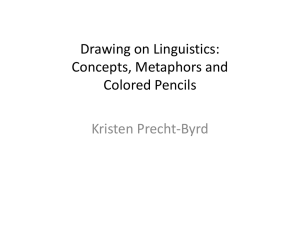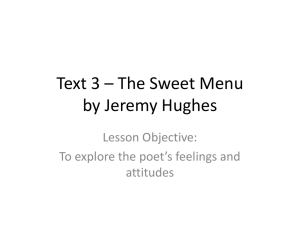Topic: There are, indeed, things that cannot be put into words
advertisement
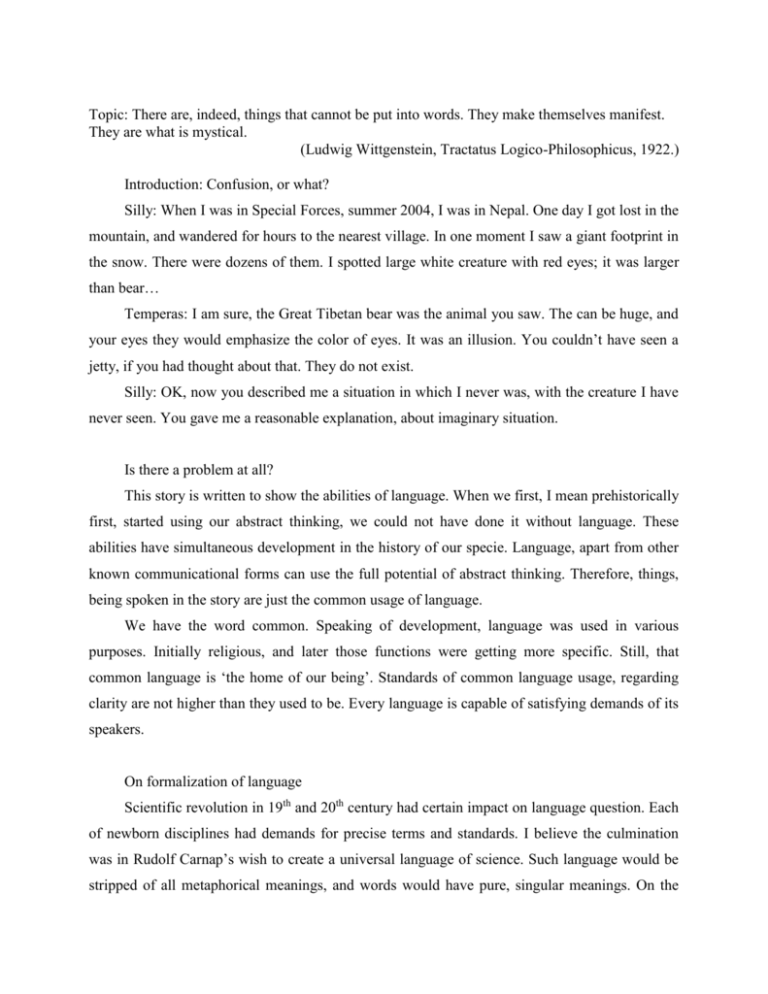
Topic: There are, indeed, things that cannot be put into words. They make themselves manifest. They are what is mystical. (Ludwig Wittgenstein, Tractatus Logico-Philosophicus, 1922.) Introduction: Confusion, or what? Silly: When I was in Special Forces, summer 2004, I was in Nepal. One day I got lost in the mountain, and wandered for hours to the nearest village. In one moment I saw a giant footprint in the snow. There were dozens of them. I spotted large white creature with red eyes; it was larger than bear… Temperas: I am sure, the Great Tibetan bear was the animal you saw. The can be huge, and your eyes they would emphasize the color of eyes. It was an illusion. You couldn’t have seen a jetty, if you had thought about that. They do not exist. Silly: OK, now you described me a situation in which I never was, with the creature I have never seen. You gave me a reasonable explanation, about imaginary situation. Is there a problem at all? This story is written to show the abilities of language. When we first, I mean prehistorically first, started using our abstract thinking, we could not have done it without language. These abilities have simultaneous development in the history of our specie. Language, apart from other known communicational forms can use the full potential of abstract thinking. Therefore, things, being spoken in the story are just the common usage of language. We have the word common. Speaking of development, language was used in various purposes. Initially religious, and later those functions were getting more specific. Still, that common language is ‘the home of our being’. Standards of common language usage, regarding clarity are not higher than they used to be. Every language is capable of satisfying demands of its speakers. On formalization of language Scientific revolution in 19th and 20th century had certain impact on language question. Each of newborn disciplines had demands for precise terms and standards. I believe the culmination was in Rudolf Carnap’s wish to create a universal language of science. Such language would be stripped of all metaphorical meanings, and words would have pure, singular meanings. On the other hand, Wittgenstein believed the true path to understanding of being is common language. He had ideas about clarity in terms of specific usage of language. Philosophy must deal with problems of language-usage, regarding interpretation of language-caused problems. To deal with this problem, I believe we have to abandon clear language of science and devote to problems of common language. Metaphors we live by What is the problem with our story? It demonstrates the ability of language and mind to transcend the time-space continuum. Still, we speak there about clearly defined facts, such as bears, snow, jetty, etc. We have not used any metaphors in the story. Commonly wrong, we bond metaphors with literature. Metaphors, or better to say, conceptualizing is the basic ability of human mind. Since we have abstract thinking as common in our live, it must have its roots. Using metaphors, we explain abstract concepts and structure. Our tool is analogy, logic and every-day experience. The most common metaphor is LOVE IS WAR. Using war, historically very common phenomena, we explain something as abstract as love. In the same time we connected two, could be said, very opposite thoughts. In that manner the meanings, as well as, ideas, are born. Hegelian synthesis is what Kant’s mind does. Not every idea, concept is attributed with clarity and logic. That is why we have Kant’s mind, not ratio. That mind uses impressions of Hume to make an idea. When we think of it, using conceptualization, mind never works with emptiness. Hume says that when mind deals with high ideas such as God, it works on empty. Unfortunately, there is a very peculiar similarity between gods; they are all human-like, in one way or another. I do not think Hume’s explanation is good enough. God can be thought, I suppose reasons are obvious. What cannot be thought? Imagine a medieval intellectual thinking of solar radiation in his age. He cannot. There is no knowledge of such phenomena, so he cannot think of it, and they cannot exist for him. Still we know they exist. This is a prove, we cannot think of every form of existence with mind. Not every idea could be understood with mind in every time. Some forms of Hegel’s absolute are out of mind’s metaphorical affairs. One of the greatest example is Plotinus’s god, one. Plotinus did not use metaphors to understand his god. There were other religious groups, especially in Byzantine medieval who had the same idea as Plotinus. They believed god can be felt only through ecstasy. These feelings are what defines god, not Descartes logical assumption, nor Cogito ergo sum. Feelings are how we experience something beyond mind. In a way these experiences can be thought or spoken, but think just of loss of emotion while speaking about them. We can take a look into experience of shamans all over the world. They can describe their surrealistic experience, but these stories are, probably nothing, comparing to genuine experience. Near-death experience People who had that experience say their whole life passed over their eyes, the continuum of life. Every second of their life was in front of them. Also, can one imagine history in a singular vision, to think of himself, Brunel, Hegel, Cicero and Lucy at the same time? When we separate these people and their ages it is easy to think of them, but when the structure become big, in manner of Spinoza and Bruno, than Hegelian mind is stuck. Synthesis in conscious level is being impossible. Can conscious mind achieve Hegelian absolute or it is contempt to understand the truth in unconscious level? Picture says 1000 words Art is said to be understood in this, unconscious level. Modern paintings can be understood in cultural context, but emotions they contain overcome abilities of conscious mind. Mark Rothko painted, using simple, dark colors, nameless objects and shapes. Such an emotion is put into that picture that people cry in front of it. Rothko’s emotions can freeze blood in your veins. Marina Abramovic had a tremendous project in MOMA a few years ago. Her job was to sit in the hall of the museum, not to say a word, and still communicate with people. Looking into her sad eyes and face radiating with emotions of solitude and existential fear, a woman from the audience cried. Can the genuine thought of modern post-rock or New Age music be understood with conscious mind, when no words are spoken, just the rhythm and sound? Certainly you need more than ears to hear that. Conclusion 1. Not every form of absolute can be thought and felt. 2. There are forms which can be thought consciously. 2.1. Those which can be thought consciously are metaphor-makers. 2.2. Of metaphors could be spoken with clarity. 2.2.1. Feelings and highly abstract concepts, such as god can be expressed as metaphors. 2.2.1.1. Metaphors transfer abstract concept into real life. 3. There are forms which cannot be thought consciously. 3.1. These forms must be felt. 3.1.1. These forms are abstract concepts. 3.2. Abstract concepts can be best expressed through art and feelings. 3.2.1. Art and feelings are usually not defined with consciousness. 3.3. Path to unconsciousness is through ecstasy. 3.3.1. Unconsciousness is keeper of continuum reasoning.

